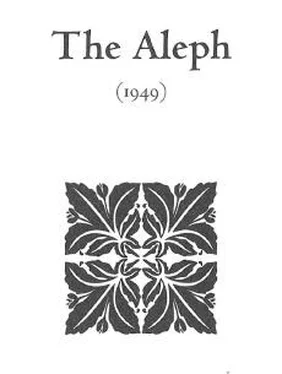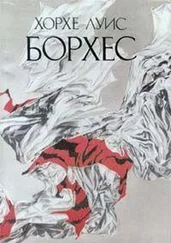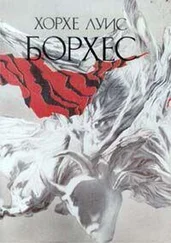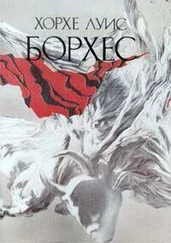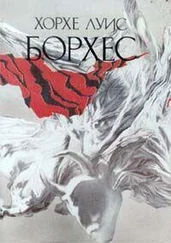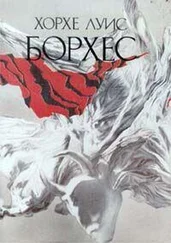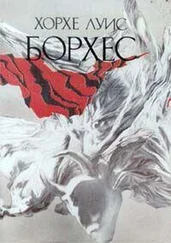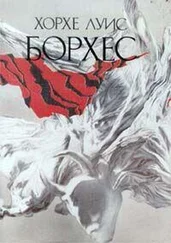Хорхе Борхес - Collected Fictions
Здесь есть возможность читать онлайн «Хорхе Борхес - Collected Fictions» весь текст электронной книги совершенно бесплатно (целиком полную версию без сокращений). В некоторых случаях можно слушать аудио, скачать через торрент в формате fb2 и присутствует краткое содержание. Год выпуска: 1999, ISBN: 1999, Издательство: Penguin (UK), Жанр: Старинная литература, на английском языке. Описание произведения, (предисловие) а так же отзывы посетителей доступны на портале библиотеки ЛибКат.
- Название:Collected Fictions
- Автор:
- Издательство:Penguin (UK)
- Жанр:
- Год:1999
- ISBN:9780140286809
- Рейтинг книги:5 / 5. Голосов: 1
-
Избранное:Добавить в избранное
- Отзывы:
-
Ваша оценка:
- 100
- 1
- 2
- 3
- 4
- 5
Collected Fictions: краткое содержание, описание и аннотация
Предлагаем к чтению аннотацию, описание, краткое содержание или предисловие (зависит от того, что написал сам автор книги «Collected Fictions»). Если вы не нашли необходимую информацию о книге — напишите в комментариях, мы постараемся отыскать её.
Collected Fictions — читать онлайн бесплатно полную книгу (весь текст) целиком
Ниже представлен текст книги, разбитый по страницам. Система сохранения места последней прочитанной страницы, позволяет с удобством читать онлайн бесплатно книгу «Collected Fictions», без необходимости каждый раз заново искать на чём Вы остановились. Поставьте закладку, и сможете в любой момент перейти на страницу, на которой закончили чтение.
Интервал:
Закладка:
THE WIZARD THAT WAS MADE TO WAIT
In Santiago de Compostela, there was once a dean of the cathedral who was greedy to learn the art of magic. He heard a rumor that a man named Ulan, who lived in the city of Toledo, knew more things respecting this art than any other man, and he set off to Toledo to find him.
The day the dean arrived, he went directly to the place where Illán lived and found him at his books, in a room at the rear of the house. Ulan greeted the dean kindly, but begged that he put off the business of his journey until after they had eaten. He showed him to a cool apartment and told him he was very glad that he had come. After dinner, the dean explained the purpose of his journey, and asked Illán to teach him the occult science. Ulan told him that he had divined that his visitor was a dean, a man of good position and promising future; he told him, also, however, that he feared that should he teach him as he asked, the dean would forget him afterward. The dean promised that he would never forget the kindness shown him by Illán, and said he would be forever in his debt. When that vow was made, Illán told the dean that the magic arts could be learned only in a retired place, and he took him by the hand and led him into an adjoining room, where there was a large iron ring in the floor. First, however, he instructed his serving-woman that they would have partridge for dinner, though he told her not to put them on the fire until he bade her do so. The two men together lifted the iron ring, and they began to descend a stairway hewn with skill from stone; so far did they descend these stairs that the dean would have sworn they had gone beneath the bed of the Tagus. At the foot of the stairway there was a cell, and then a library, and then a sort of cabinet, or private study, filled with instruments of magic. They thumbed through the books, and as they were doing this, two men entered with a letter for the dean. This letter had been sent him by the bishop, his uncle, and it informed him that his uncle was taken very ill; if the dean wished to see him alive, the letter said, he should return home without delay. This news vexed the dean greatly, in the first instance because of his uncle's illness, but second because he was obliged to interrupt his studies. He resolved to send his regrets, and he sent the letter to the bishop. In three days, several men arrived, dressed in mourning and bringing further letters for the dean, informing him that his uncle the bishop had died, that a successor was being chosen, and that it was hoped that by the grace of God he himself would be elected. These letters also said that he should not trouble himself to come, since it would be much better if he were elected in absentia.
Ten days later, two very well-turned-out squires came to where the dean was at his studies; they threw themselves at his feet, kissed his hand, and ad-dressed him as "bishop."
When Illán saw these things, he went with great happiness to the new prelate and told him he thanked God that such good news should make its way to his humble house. Then he asked that one of his sons be given the vacant deanship. The bishop informed him that he had reserved that position for his own brother, but that he was indeed resolved to show Illan's son favor, and that the three of them should set off together for Santiago at once.
The three men set off for Santiago, where they were received with great honors. Six months later, the bishop received messengers from the Pope, who offered him the archbishopric of Tolosa and left to the bishop himself the choice of his successor. When Illán learned this news, he reminded the bishop of his old promise and requested the bishopric for his son. The new archbishop informed Ulan that he had reserved the bishopric for his own uncle, his father's brother, but that he was indeed resolved to show Illan's son favor, and that they should set off together for Tolosa at once. Illán had no choice but to agree.
The three men set off for Tolosa, where they were received with great honors and with masses. Two years later, the archbishop received messengers from the Pope, who offered him a cardinal's biretta and left to the arch-bishop himself the choice of his successor. When Illán learned this news, he reminded the archbishop of his old promise and requested the arch-bishopric for his son. The new cardinal informed Illán that he had reserved the archbishopric for his own uncle, his mother's brother, but that he was indeed resolved to show Illan's son favor, and he insisted that they set out together for Rome at once. Illán had no choice but to agree.
The three men set out together for Rome, where they were received with great honors and with masses and processions. Four years later the Pope died, and our cardinal was unanimously elected to the Holy See by his brother cardinals. When Illán learned this news, he kissed the feet of His Holiness, reminded him of his old promise, and requested that his son be made cardinal in His Holiness' place. The Pope threatened Illán with imprisonment, telling him that he knew very well he was a wizard who when he had lived in Toledo had been no better than a teacher of magic arts. The miserable Illán said he would return to Spain, then, and begged of the Pope a morsel to eat along the way. The Pope refused. Then it was that Illán (whose face had become young again in a most extraordinary way) said in a firm and steady voice:
"Then I shall have to eat those partridges that I ordered up for tonight's supper."
The serving-woman appeared and Illán told her to put the partridges on the fire. At those words, the Pope found himself in the cell under Illan's house in Toledo, a poor dean of the cathedral of Santiago de Compostela, and so ashamed of his ingratitude that he could find no words by which to beg Illan's forgiveness. Illán declared that the trial to which he'd put the dean sufficed; he refused him his portion of the partridges and went with him to the door, where he wished him a pleasant journey and sent him off most courteously.
(From the Libro de Patronio by the Infante don Juan Manuel, who took it in turn from an Arabic volume, The Forty Mornings and the Forty Nights)
THE MIRROR OF INK
History records that the crudest of the governors of the Sudan was Yãqub the Afflicted, who abandoned his nation to the iniquities of Egyptian tax collectors and died in a chamber of the palace on the fourteenth day of the moon of Barmajat in the year 1842. There are those who insinuate that the sorcerer Abderramenal-Masmud1 (whose name might be translated "The Servant of Mercy") murdered him with a dagger or with poison, but a natural death is more likely—especially as he was known as "the Afflicted." Nonetheless, Capt. Richard Francis Burton spoke with this sorcerer in 1853, and he reported that the sorcerer told him this story that I shall reproduce here:
. . .
"It is true that I suffered captivity in the fortress of Yakub the Afflicted, due to the conspiracy forged by my brother Ibrahim, with the vain and perfidious aid of the black chieftains of Kordofan, who betrayed him. My brother perished by the sword upon the bloody pelt of justice, but I threw myself at the abominated feet of the Afflicted One and told him I was a sorcerer, and that if he granted me my life I would show him forms and appearances more marvellous than those of the fanusi jihal, the magic lantern. The tyrant demanded an immediate proof; I called for a reed pen, a pair of scissors, a large sheet of Venetian paper, an inkhorn, a chafing-dish with live charcoal in it, a few coriander seeds, and an ounce of benzoin. I cut the pa-per into six strips and wrote charms and invocations upon the first five; on the last I inscribed the following words from the glorious Qur'an: 'We have removed from thee thy veil, and thy sight is piercing.' Then I drew a magic square in Yakub's right palm and asked him to hold it out to me; into it, I poured a circle of ink. I asked him whether he could see his face in the circle, and he told me that he could see it clearly. I instructed him not to raise his eyes. I put the benzoin and the coriander seeds into the chafing-dish and therein also burned the invocations. I asked the Afflicted One to name the figure that he wished to see. He thought for a moment and told me that he wished to see a wild horse, the most beautiful creature that grazed up on the meadows that lie along the desert. He looked, and he saw first green and peaceful fields and then a horse coming toward him, as graceful as a leopard and with a white star upon its forehead. He then asked me for a herd of such horses, as perfect as the first, and he saw upon the horizon a long cloud of dust, and then the herd. I sensed that my life was safe.
Читать дальшеИнтервал:
Закладка:
Похожие книги на «Collected Fictions»
Представляем Вашему вниманию похожие книги на «Collected Fictions» списком для выбора. Мы отобрали схожую по названию и смыслу литературу в надежде предоставить читателям больше вариантов отыскать новые, интересные, ещё непрочитанные произведения.
Обсуждение, отзывы о книге «Collected Fictions» и просто собственные мнения читателей. Оставьте ваши комментарии, напишите, что Вы думаете о произведении, его смысле или главных героях. Укажите что конкретно понравилось, а что нет, и почему Вы так считаете.
